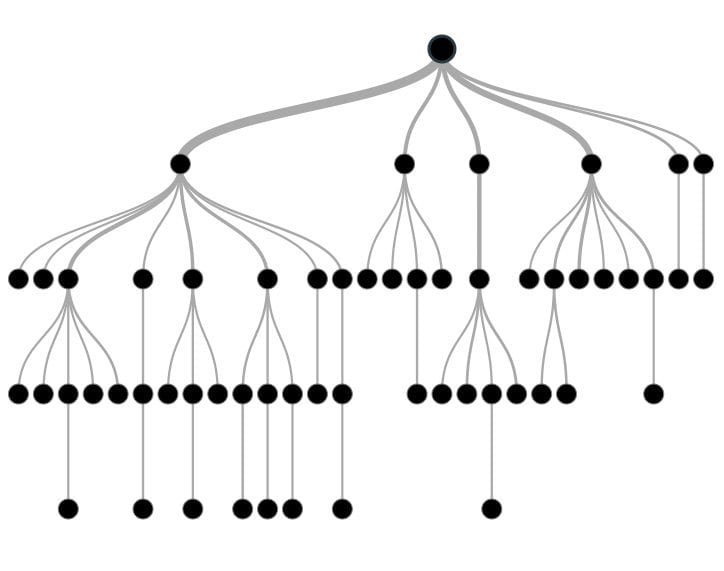The Perfect Way To End Perfectionism
Habit Change
Sometimes when I need to start a project – a blog post, cleaning my house, a marketing campaign – whatever it might be – my brain starts mapping all of the possible ways it can be done. While never this organized, it can feel a bit like this:

It’s like I can see the endless decisions that need to be made – without knowing the answers to those decisions. It’s overwhelming and frustrating. I want to know how to navigate the entire project before I get started. Or at least most of it.
The overwhelm is my clue that I don’t yet know how to move forward.
From here, it makes sense to hold off. To not start until I am more clear or feel motivated or figure out the answers to a lot of these questions.
And thus my cycle of perfectionism and procrastination continues.
Here’s the deal:
The sneaky part of perfectionism is that it looks logical and rationale. It doesn’t look like “perfectionism” or “procrastination”. As a result you don’t have the right information or the right feelings to move forward.
It seems logical to keep thinking about the project. To try to make some decisions. To figure out my ideal outcome or how to best motivate myself.
It can also look logical to avoid all the thinking – to find something else to distract you so that you can take a break from the pressure of trying to figure it out.
Sound familiar?
This was how I perpetuated my habit of perfectionism and procrastination for most of my life. This was the cycle that I seemed to be forever caught in. Constantly pushing myself to figure things out or hiding away when the overwhelm got too intense.
And then I learned a new way out. And this understanding changed the game entirely for me.
Nowadays if I find myself caught up in this old pattern I don’t stay here for long. And more often than not I don’t end up here in the first place.
This cycle no longer looks like a logical place to hang out.
Here is my take on the perfect way to end perfectionism.
- See the cycle. This awareness is wildly helpful. When you can see for yourself that what you are caught up in – the churning, overwhelming thinking and feelings isn’t actually a reflection of reality but rather an old pattern of thought and feeling. The moment you see you are in it – you are automatically out of it.
- See the logic. It isn’t actually possible to know all the decisions – or their answers – in advance of starting a project. It also isn’t at all necessary. Clarity, motivation, outcomes, the right thinking, the right feelings – none of this is a requirement to start. You are “starting” tasks all the time – hundreds of times a day – without any of these supposed requirements in place.
- See the obvious. When we aren’t so captivated by the chatter in our heads or how we are feeling we naturally end up more aware of what is right now. Right now there is far less overwhelm and monitoring of thought and feelings. Right now it is far easier to see the next obvious next step. Look for the “no brainer” decision. Or as one of my clients puts it, “the of course” option.
When we step back and see that we are going through in our old cycle of perfectionism and procrastination we dramatically increase the number of options we have to move forward. To overcome perfectionism, we don’t have to change or fix our thoughts and feelings for this to occur. However, letting them be, allows us to stay more present to the obvious next steps we need to take. To listen to ourselves at a deeper level – beyond the noise and chatter of our minds.
If you’d like to dive in deeper, I’d suggest you start with my latest eGuide, The Backwards Way to Move Forward Today, which you can download for free here.
Latest Blog posts
![[Free Meditation] The Dangers Of Self-Improvement](/media/images/Free_Meditation_The_Da.2e16d0ba.format-jpeg.fill-590x300.jpg)
[Free Meditation] The Dangers Of Self-Improvement
How you get into the water is less important than actually being in the water.

Resources For Women With ADHD
I recently sat down with Linda Roggli, PCC, for a quick and informative interview.

10 Hard To Believe (But True) Productivity Statistics
Here are some of my favorite hard to believe productivity statistics that help point out what science has known longer than our society